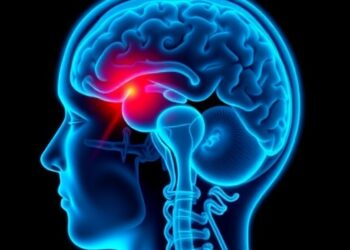Since its initial description by Dr. Jürgen Ludwig in 1980, nonalcoholic fatty liver disease (NAFLD) has evolved into a major global health burden, with its prevalence continuing to escalate due to drastic lifestyle changes. Today, NAFLD, more aptly referred to as metabolic dysfunction-associated steatotic liver disease (MASLD), encompasses a wide spectrum of liver disorders ranging from simple steatosis to severe liver fibrosis, cirrhosis, and ultimately, hepatocellular carcinoma (HCC). The disease process is intricately linked to metabolic syndrome, including obesity and type 2 diabetes mellitus, emphasizing the importance of addressing MASLD as a systemic condition.
Pathogenesis and Underlying Mechanisms
MASLD’s progression is characterized by two key hits: the initial accumulation of triglycerides in hepatocytes, followed by oxidative stress, inflammation, and fibrosis. Insulin resistance and obesity are key contributors to this pathological cascade, triggering mitochondrial dysfunction, endoplasmic reticulum stress, and lipotoxicity. Furthermore, an imbalance in the production and elimination of pro-inflammatory cytokines and adipokines such as TNF-α, IL-6, leptin, and resistin plays a pivotal role in exacerbating hepatic inflammation.
The Gut-Liver Axis
In recent years, the connection between the gut microbiota and the development and progression of MASLD has garnered significant attention. The gut-liver axis represents a bidirectional communication pathway that involves the exchange of metabolites, immune signaling molecules, and inflammatory responses. In MASLD patients, heightened intestinal permeability is often observed, facilitating the translocation of bacterial products such as lipopolysaccharides into the liver, exacerbating the inflammatory process.
Intestinal Microbiota and Its Impact
The intestinal microbiota, comprising a diverse range of bacterial species, responds dynamically to changes in diet, lifestyle, and the environment. Its dysbiosis, characterized by alterations in microbial composition and function, has been implicated in the development of MASLD. In particular, changes in the production of short-chain fatty acids (SCFAs), bile acids (BAs), and other bioactive metabolites by gut microbes significantly influence hepatic metabolism and immune function.
Therapeutic Implications
Given the central role of the gut microbiota in MASLD, targeted therapeutic strategies are being explored. Precision medicine approaches such as fecal microbiota transplantation (FMT), prebiotics, synbiotics, and probiotics are gaining traction as potential therapies. FMT, which involves the transplantation of healthy gut microbiota from a donor to a recipient, has shown promising results in reversing MASLD-associated gut dysbiosis and restoring metabolic homeostasis. Meanwhile, prebiotics and synbiotics, which aim to modify the gut microbial environment through the ingestion of non-digestible carbohydrates and live microorganisms, respectively, offer additional avenues for disease management.
Diagnostic Advances
Diagnostic methods for MASLD have also undergone significant advancements. Traditional liver biopsy, although the gold standard, is invasive and can lead to complications. Noninvasive tools such as magnetic resonance imaging, elastography, and biomarker-based tests like the Fibro-Test and Steato-Test have been developed to detect liver steatosis and fibrosis. Furthermore, emerging technologies such as metagenomics and metabolomics are enabling researchers to characterize the gut microbiota composition and metabolic functions, facilitating personalized diagnosis and treatment strategies.
Conclusions
MASLD, the updated terminology for NAFLD, represents a multifaceted condition rooted in metabolic dysfunction. The gut-liver axis, mediated by the intricate interplay between intestinal microbiota and its metabolites, plays a critical role in its development and progression. Understanding these underlying mechanisms has led to the exploration of novel therapeutic and diagnostic strategies aimed at targeting the gut microbiota. Future research should continue to focus on deciphering the intricate relationship between the gut and liver, thereby unlocking nw avenues for preventing and treating this pervasive disease.
Full text
The study was recently published in the Journal of Translational Gastroenterology.
Journal of Translational Gastroenterology (JTG) dedicates to improving clinical diagnosis and treatment, advancing understanding of the molecular mechanisms, and promoting translation from bench to bedside of gastrointestinal, hepatobiliary, and pancreatic diseases. The aim of JTG is to provide a forum for the exchange of ideas and concepts on basic, translational, and clinical aspects of gastroenterology, and promote cross-disciplinary research and collaboration.
Follow us on X: @xiahepublishing
Follow us on LinkedIn: Xia & He Publishing Inc.




